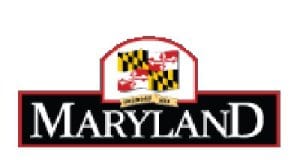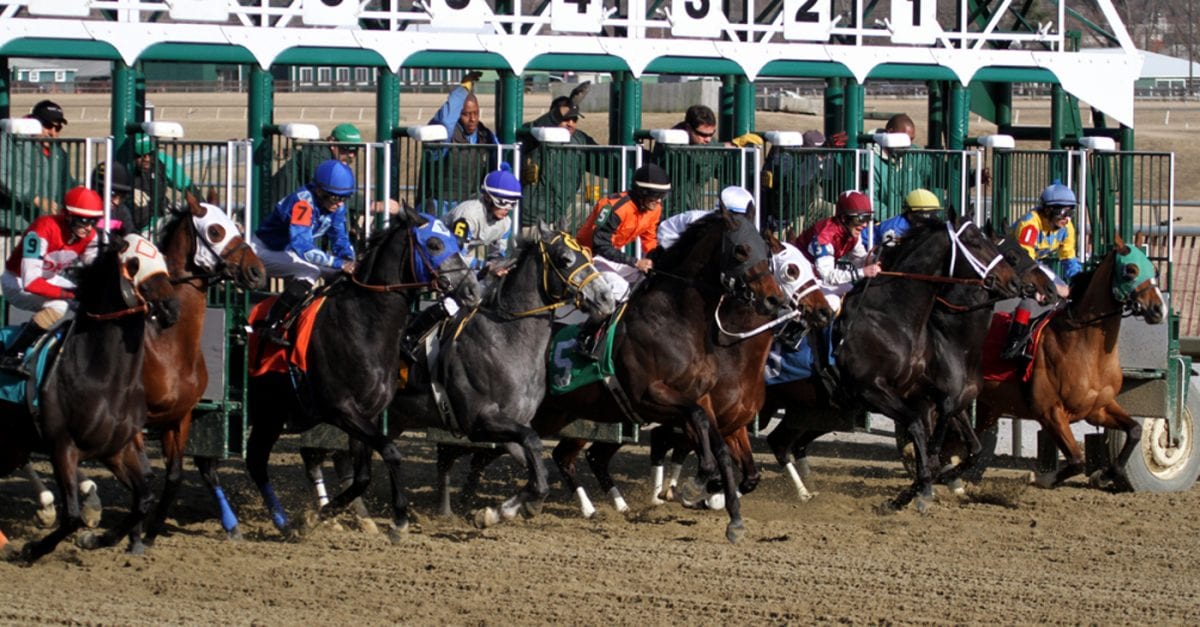by Frank Vespe
 The Maryland Racing Commission made one more run at the issue of jockey weight allowances today, its third in recent months. But this time, it reached a resolution — though not one that pleased everyone.
The Maryland Racing Commission made one more run at the issue of jockey weight allowances today, its third in recent months. But this time, it reached a resolution — though not one that pleased everyone.
At issue: when horsemen can claim an apprentice allowance.
In most racing venues, according to the Jockeys’ Guild, trainers must claim the allowance — apprentice riders receive a weight allowance of five to 10 pounds, as a sort of compensation for their presumably less developed riding skills — at the time of entry, typically three days prior to the race.
In Maryland — “literally the only state in the country that does it this way,” according to the Guild’s Mindy Coleman — trainers can claim the allowance at scratch time, which is another day closer to the actual race.
That, say journeyman jocks, is unfair to them and limits the number of mounts they can secure. Moreover, says the Guild, it’s unfair to fans — who may not realize until too late that certain horses in a race may be carrying dramatically different weights than those published in the early entries — and horsemen, who may find themselves faced with a rival carrying far less weight than they had originally thought.
“The only thing we’ve been talking about this entire time is fairness and transparency to everybody,” Coleman told the Commission.
Maryland horsemen counter that the rule works fine as is, though they were willing to consider minor tweaks. Horsemen say that, when for whatever reason their chosen rider is unable to meet his riding obligation, the fairest solution is to allow them to choose any available rider on the grounds and, if that rider is an apprentice, to receive the requisite weight allowance.
“The concession they’ve made is, at the time of entry, if you do not name a rider, you can’t claim an allowance,” said Commissioner David Hayden, who’d been involved in the discussions between the Guild and the Maryland Thoroughbred Horsemen’s Association (MTHA).
That’s an improvement, suggested Coleman, but not enough to earn the support of the journeymen. She pointed to situations in which trainers name riders they know will not be able to fulfill their obligations as a way in which trainers might skirt the intent of the rule. For example, she said, trainer Bill Mott had recently named rider John Velazquez to mounts at Aqueduct and at Gulfstream at virtually the same time on the same day. Under the Maryland rule, he could be replaced with a 10-pound apprentice on the mount which he could not ride.
But, trainer Linda Gaudet suggested, that was overselling the situation. “It’s not a situation that’s being abused,” she said.
In the end, Commission Louis Ulman moved adoption of a slightly modified version of the MTHA’s proposal, and, despite the Guild’s opposition, the Commission approved it unanimously.
The new rule will permit the naming of an apprentice, and the claiming of the apprentice allowance, at scratch time if the change is to replace a previously named rider “who is unable to fulfill his engagement.” However, the rule prohibits claiming the allowance “if a mount is left open at time of entry.”
IN OTHER NEWS:
- The Commission overturned the suspension of rider Kristina McManigell. She piloted Avarice to a win in the eighth at Laurel Park on February 6 but was disqualified for allegedly impeding Midnight Music and J.D. Acosta. Though many observers felt that any problems were actually initiated by Acosta, the stewards disqualified Avarice, placing him behind Midnight Music, in last. The stewards had, in addition, imposed a three-day suspension on the rider, which the Commission today rejected.
- In recent weeks, Maryland’s void-claim rule — which voids the claim of a horse if that horse dies during a race or dies or is euthanized immediately afterwards while on the track — has gotten something of a workout. One claimed horse had to be euthanized on the track, thus voiding the claim; another claimed horse was vanned off and subsequently had to be euthanized, not triggering the void provision but angering the trainer, who felt that it should have been. The Commission today signaled its interest in increasing the scope of the rule, and chairman Bruce Quade charged Tom Chuckas, president of track owner the Maryland Jockey Club, and MTHA general counsel Alan Foreman with reaching accord on what that rule might look like. “My sense is that we need to expand it somehow,” Quade said.
- In legislative news, the only racing-related legislation likely to pass in Annapolis this year would simply extend the state’s Horse Racing Act, which governs racing in Maryland.








